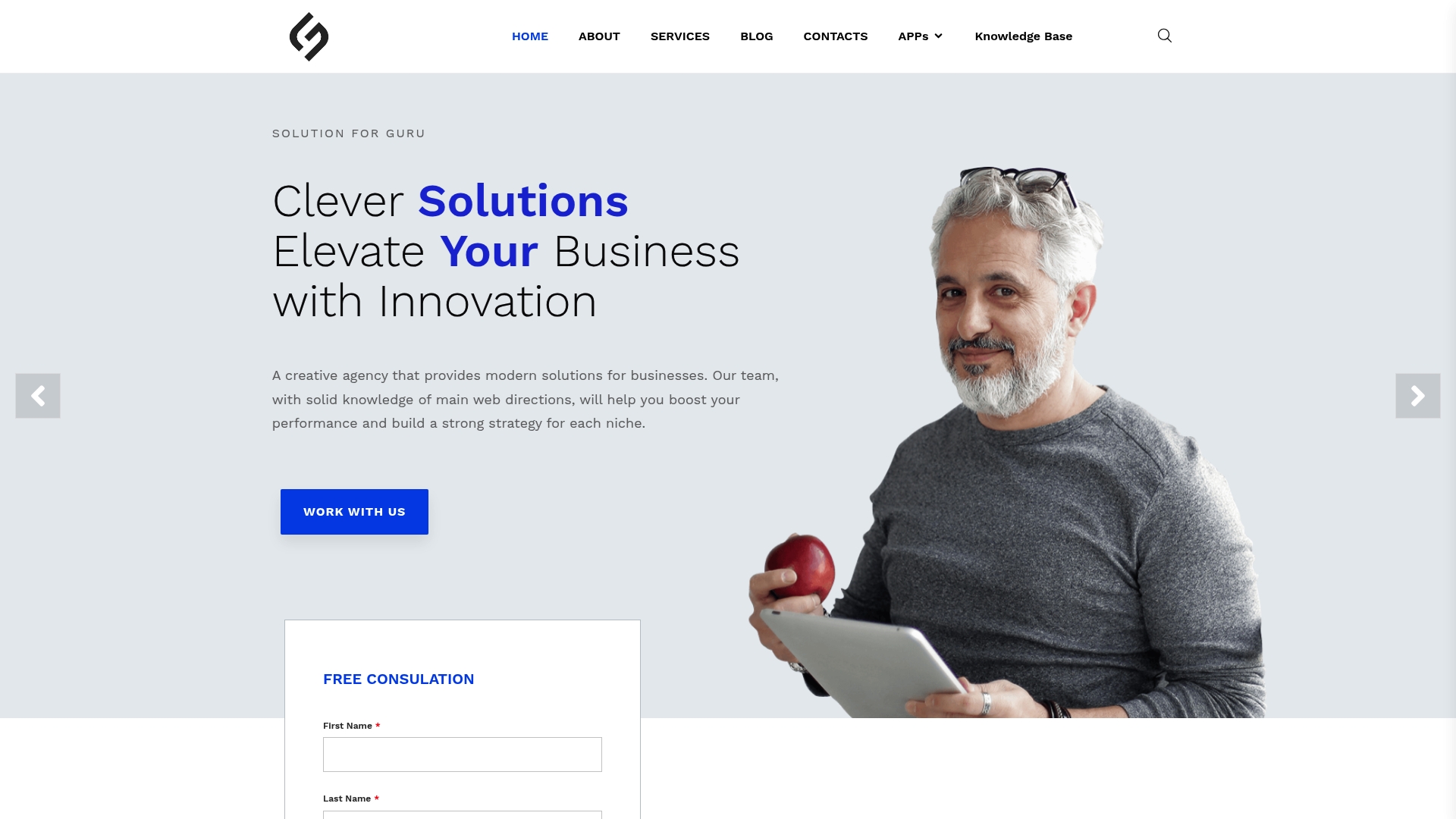Understanding the Difference Between B2B and B2C Marketing

Whether you sell sneakers to athletes or cloud software to enterprises, the way you market makes a massive difference. Over 70 percent of B2B buyers expect personalized, logic-driven messaging, while B2C consumers are swayed by emotion and impulse. That sounds like two completely separate worlds. But the real surprise is that the line between them is getting blurrier every year, and some of the best winning strategies use a mix of both approaches.
Table of Contents
- Defining B2B And B2C Marketing: Key Characteristics
- Understanding The Importance Of Audience In Marketing
- Comparing Marketing Strategies: Objectives And Approaches
- Analysis Of Customer Relationships: B2B Vs B2C
- Real-World Examples: Insights Into B2B And B2C Success
Quick Summary
| Takeaway | Explanation |
|---|---|
| Understand B2B vs B2C marketing | Recognize that B2B targets businesses with logical strategies while B2C focuses on individual consumers with emotional appeals. |
| Segment audiences for effective targeting | Use granular segmentation based on demographics and behaviors to create personalized messaging that truly resonates. |
| Select appropriate communication channels | Choose channels based on audience preferences and engagement metrics to increase the effectiveness of your marketing outreach. |
| Emphasize relationship depth in B2B | Develop long-term partnerships and customized solutions, recognizing the complexity and value inherent in B2B interactions. |
| Create emotional connections in B2C | Use storytelling and brand experiences to forge strong emotional bonds with consumers, driving engagement and loyalty. |
Defining B2B and B2C Marketing: Key Characteristics
Marketing approaches fundamentally differ when businesses target other businesses (B2B) versus direct consumers (B2C). Understanding these distinctions allows companies to craft more effective, targeted strategies that resonate with their specific audience.
What Defines B2B Marketing
B2B marketing involves selling products or services directly to other businesses rather than individual consumers. This approach requires a more rational, logic-driven strategy focused on demonstrating clear value, return on investment, and solving specific business challenges. Key characteristics of B2B marketing include:
- Longer sales cycles with multiple decision makers
- Emphasis on relationship building and professional credibility
- Detailed product specifications and performance metrics
- Communication that highlights efficiency and cost savings
Companies engaging in B2B marketing typically prioritize professional networking, industry conferences, and targeted digital platforms like LinkedIn to connect with potential clients.
What Defines B2C Marketing
B2C marketing targets individual consumers directly, emphasizing emotional connections, personal benefits, and immediate gratification. Unlike B2B marketing, B2C strategies aim to create instant appeal and trigger purchasing decisions through more creative, lifestyle-oriented messaging. Characteristics include:
- Shorter decision making processes
- Strong emotional and personal value propositions
- Broader marketing channels like social media and digital advertising
- Price and convenience as primary motivational factors
While both marketing approaches require understanding customer needs, their execution differs significantly.
To highlight the fundamental distinctions between B2B and B2C marketing, the following table summarizes their key characteristics and strategic differences.
| Aspect | B2B Marketing | B2C Marketing |
|---|---|---|
| Target Audience | Businesses, organizations, decision-makers | Individual consumers |
| Decision-Making Process | Longer, involves multiple stakeholders, rational and logical | Shorter, impulse-driven, often emotional |
| Sales Cycle Length | Extended, with relationship-building emphasis | Short, focused on quick transactions |
| Messaging Focus | Value proposition, ROI, detailed product specs | Emotional appeal, personal benefits, lifestyle messaging |
| Primary Channels | LinkedIn, industry events, professional networking | Social media, digital ads, mass marketing |
| Relationship Depth | Long-term partnerships, professional credibility | Transient, focused on immediate satisfaction |
| Motivational Factors | Efficiency, cost savings, technical advantage | Price, convenience, aspirational identity |
 For businesses looking to refine their marketing strategies, understanding digital marketing best practices can provide deeper insights into effectively reaching target audiences.
For businesses looking to refine their marketing strategies, understanding digital marketing best practices can provide deeper insights into effectively reaching target audiences.
Successful marketing requires recognizing these fundamental differences and tailoring communication strategies accordingly. Whether targeting businesses or individual consumers, the core principle remains the same: delivering compelling value that addresses specific customer needs and pain points.
Understanding the Importance of Audience in Marketing
Audience understanding represents the cornerstone of successful marketing strategies. Without a comprehensive grasp of target demographics, businesses risk creating ineffective campaigns that fail to connect with potential customers.
Audience Segmentation and Personalization
Effective marketing demands granular audience segmentation. Companies must move beyond broad categorizations and develop nuanced profiles that capture specific customer characteristics, preferences, and behaviors. This approach allows for hyper-targeted messaging that resonates more deeply with potential customers.
Key audience segmentation factors include:
- Demographic characteristics (age, income, location)
- Psychographic attributes (interests, values, lifestyle)
- Behavioral patterns (purchasing history, engagement levels)
- Technological preferences and digital interaction styles
According to research from Pacific Community Ventures, successful marketing strategies recognize that different audience segments require distinctly tailored communication approaches.
Communication Channel Selection
Choosing appropriate communication channels is critical in reaching and engaging target audiences. Different demographic groups prefer varied communication platforms, making channel selection a strategic decision. For businesses looking to optimize their outreach, email marketing essentials can provide valuable insights into targeted communication strategies.
Marketing professionals must consider multiple factors when selecting communication channels:
- Audience technology adoption rates
- Platform engagement metrics
- Content consumption preferences
- Cost effectiveness of different media
Understanding audience preferences enables businesses to craft more intelligent, responsive marketing strategies. By recognizing that each audience segment has unique communication needs, companies can develop more meaningful connections that drive engagement and ultimately, business growth.

Comparing Marketing Strategies: Objectives and Approaches
Marketing strategies in B2B and B2C contexts demand distinct methodological approaches that reflect fundamental differences in target audience dynamics, decision making processes, and communication requirements.
Strategic Decision Making Processes
The strategic framework for marketing varies dramatically between B2B and B2C environments. B2B marketing strategies typically involve complex, multi-stakeholder decision making processes characterized by rational, data-driven evaluations. These strategies prioritize demonstrating long-term value, return on investment, and solving specific organizational challenges.
Key strategic considerations in B2B marketing include:
- Comprehensive solution presentations
- Detailed performance metrics and comparative analyses
- Emphasis on professional credibility and expertise
- Technical specifications and implementation support
Emotional versus Rational Marketing Approaches
While B2B marketing emphasizes logical decision making, B2C strategies lean heavily into emotional engagement. Consumer marketing aims to create immediate emotional connections, triggering purchase decisions through lifestyle associations and personal benefit narratives. Inbound marketing strategies can provide valuable insights into creating compelling consumer-focused narratives.
Critical differentiators in marketing approach include:
- Emotional appeal versus analytical presentation
- Individual consumer versus organizational purchasing dynamics
- Speed of decision making
- Complexity of value proposition communication
According to research from energy sector marketing studies, successful marketing strategies must recognize and adapt to these fundamental differences in audience engagement models.
Ultimately, effective marketing transcends rigid categorization. The most successful approaches blend strategic insights, understand nuanced audience needs, and create targeted communication strategies that resonate authentically with specific market segments.
Analysis of Customer Relationships: B2B vs B2C
Customer relationships represent the foundational core of marketing strategies, with profound differences emerging between business-to-business (B2B) and business-to-consumer (B2C) interactions. Understanding these nuanced relationship dynamics is crucial for developing effective marketing approaches.
Relationship Depth and Complexity
B2B customer relationships are characterized by intricate, long-term partnerships that extend far beyond transactional exchanges. These relationships typically involve multiple stakeholders, complex negotiation processes, and sustained collaborative efforts. Companies invest significant resources in understanding and nurturing these professional connections, recognizing that each relationship can represent substantial economic value.
Key attributes of B2B relationship management include:
- Extended sales cycles
- Customized solution development
- Continuous performance evaluations
- Strategic partnership potential
Emotional versus Professional Connection Strategies
While B2B relationships prioritize professional credibility and measurable outcomes, B2C connections emphasize emotional resonance and personal experience. Consumer relationships are often more transient, driven by immediate satisfaction and brand perception. For businesses seeking to optimize their customer relationship strategies, understanding CRM in marketing can provide critical insights into managing these diverse interaction models.
Critical distinctions in relationship management approaches include:
- Depth of personalization
- Duration of customer engagement
- Decision making complexity
- Communication frequency and intensity
According to research from the Open University’s OpenLearn platform, successful relationship marketing transcends traditional transactional models, emphasizing continuous value creation and mutual understanding.
Ultimately, effective customer relationship strategies require nuanced understanding, adaptive communication, and a commitment to delivering exceptional value across varied interaction landscapes.
The table below compares the relationship management strategies in B2B and B2C marketing, outlining the key differences in engagement and connection approaches.
| Relationship Aspect | B2B Marketing | B2C Marketing |
|---|---|---|
| Relationship Duration | Long-term, ongoing partnerships | Short-term, transactional |
| Personalization | High, tailored solutions and services | Moderate, focused on lifestyle segments |
| Stakeholder Involvement | Multiple decision-makers | Individual consumer |
| Communication Frequency | Regular, structured, ongoing | As needed, campaign-driven |
| Connection Focus | Professional credibility, trust | Emotional resonance, brand identity |
| Value Creation | Continuous, performance-focused | Immediate, satisfaction-focused |
Real-World Examples: Insights into B2B and B2C Success
Marketing success hinges on understanding and implementing strategies tailored to specific audience contexts. Real-world examples illuminate the nuanced approaches that distinguish effective B2B and B2C marketing practices.
B2B Marketing Excellence
B2B marketing strategies often demonstrate sophisticated relationship-building techniques that transcend traditional sales approaches. Companies like Salesforce exemplify this through comprehensive solution offerings that address complex business challenges. Their marketing emphasizes detailed problem solving and measurable organizational value, showcasing how B2B strategies prioritize rational, data-driven decision making.
Key characteristics of successful B2B marketing include:
- Demonstrating quantifiable return on investment
- Providing in-depth technical expertise
- Creating collaborative solution frameworks
- Developing long-term strategic partnerships
B2C Marketing Innovation
Consumer-focused marketing thrives on creating emotional connections and memorable brand experiences. Nike represents a premier example of B2C marketing excellence, transforming product sales into powerful lifestyle narratives. Their campaigns transcend simple product promotion, instead crafting inspirational stories that resonate deeply with individual consumer identities. For businesses seeking to enhance their digital marketing strategies, understanding digital customer experience can provide critical insights into effective consumer engagement.
Pivotal elements of successful B2C marketing strategies include:
- Creating emotional brand resonance
- Leveraging storytelling techniques
- Personalizing consumer interactions
- Developing memorable brand experiences
According to research in the Journal of Business Research, successful marketing strategies recognize the intricate differences between B2B and B2C approaches, emphasizing targeted communication and audience-specific value propositions.
Ultimately, marketing success emerges from a profound understanding of audience dynamics, strategic flexibility, and an unwavering commitment to delivering exceptional value across diverse interaction landscapes.
Take Your B2B or B2C Marketing to the Next Level
Many businesses struggle to turn audience understanding into digital results. If you have ever found it difficult to create the right customer connections or align your message with sharply different buying journeys, you are not alone. The article highlights how the gap between B2B and B2C marketing strategies often leads to challenges in communication, channel selection, and relationship management. Are you ready to overcome these obstacles and transform your web presence into a true growth engine?

At Solution4Guru.com, we specialize in turning marketing insights into real digital progress. Whether you need a smarter digital marketing strategy or want to deliver a seamless digital customer experience, our tailored solutions bridge the gap between complex B2B processes and dynamic B2C engagement. Now is the time to gain a clear edge in your market. Visit our main site, discover our range of solutions, and request your free consultation today.
Frequently Asked Questions
What is the main difference between B2B and B2C marketing?
B2B marketing focuses on selling products or services to other businesses, emphasizing rational decision-making and relationship building, while B2C marketing targets individual consumers, emphasizing emotional appeal and immediate gratification.
How do sales cycles differ in B2B and B2C marketing?
B2B sales cycles are generally longer due to multiple decision-makers and complex evaluations, whereas B2C sales cycles are shorter, focusing on quicker purchasing decisions driven by personal needs and desires.
What are the key strategies for effective B2B marketing?
Effective B2B marketing strategies include demonstrating clear value and ROI, building professional relationships, providing detailed product specifications, and using targeted channels like LinkedIn for outreach.
How does audience segmentation play a role in B2B and B2C marketing?
Audience segmentation allows businesses to create nuanced customer profiles that enhance messaging. In B2B, segmentation often includes industry and company size; in B2C, it focuses on demographics, interests, and purchasing behaviors.
Recommended
- CRM vs CMS: Understanding the Differences and How to Choose the Right System for Your Business – Solution for Guru
- Understanding Digital Marketing Best Practices for Growth – Solution for Guru
- What is CRM in Marketing? A Comprehensive Guide – Solution for Guru
- What Is Inbound Marketing? A Practical Guide for Businesses – Solution for Guru



